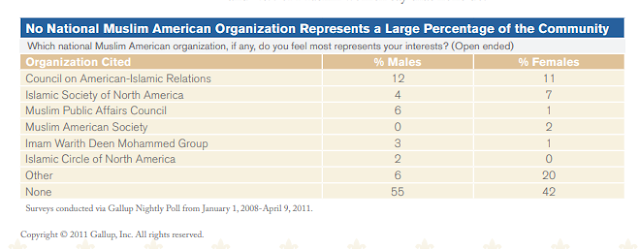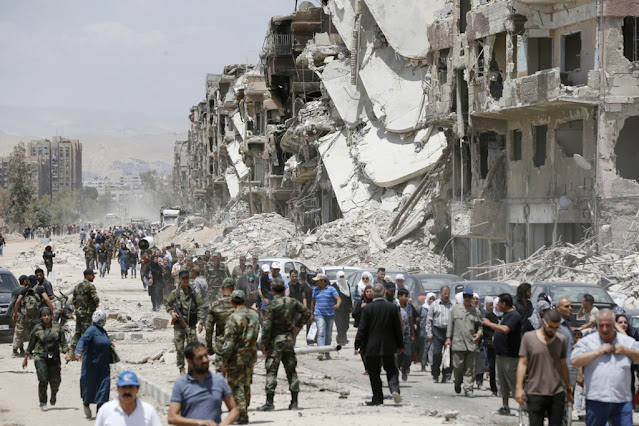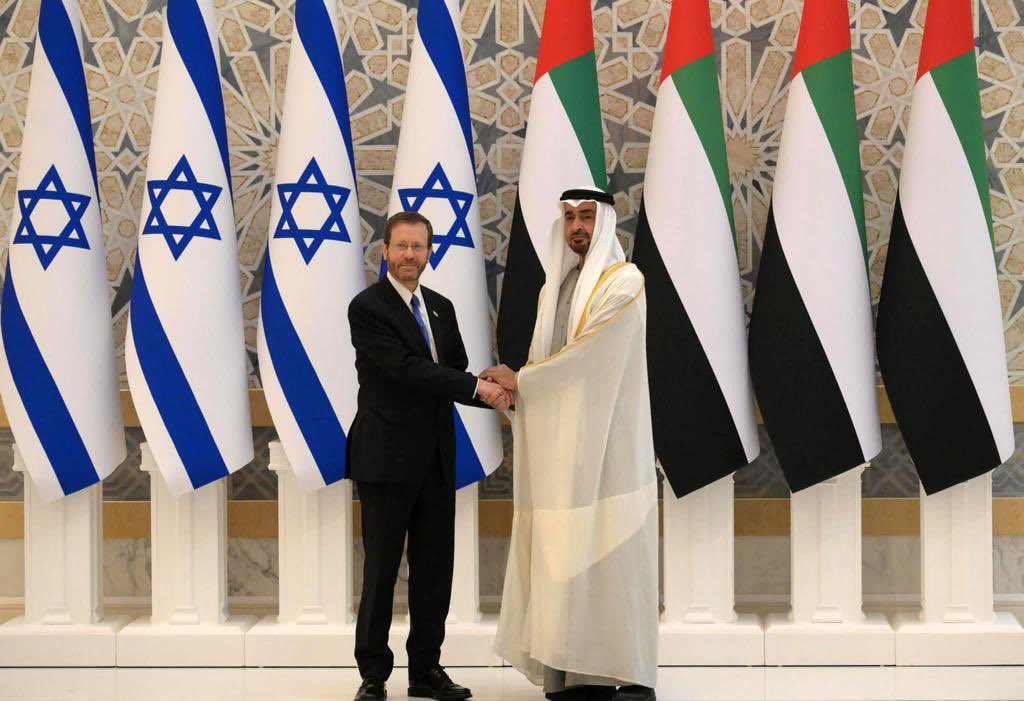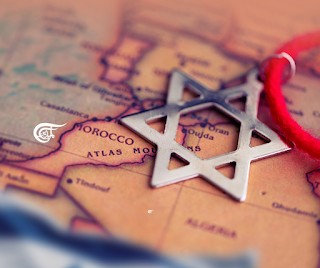By Daled Amos
Zahra Billoo attacked US Jews last year at the American Muslims for Palestine Conference, singling out as 'enemies' not only Jewish organizations but also "Zionist Synagogues." CAIR's national office came to her defense. After all, Billoo is the executive director of their San Franciso branch.
Among those Billoo targeted:
We need to pay attention to the Anti-Defamation League. We need to pay attention to the Jewish Federation. We need to pay attention to the Zionist synagogues. We need to pay attention to the Hillel chapters on our campuses, because just because they are your friends today, doesn’t mean that they have your back when it comes to human rights.
And Billoo also pointed out those Jewish groups that she finds 'acceptable':
Know your JVP leadership, your SJP leadership, your IfNotNow leadership, the list goes on. Know who is on your side. Build community with them, because the next thing I’m going to tell you is to know your enemies.
One would imagine that CAIR would agree with Billoo that groups like JVP and IfNotNow are groups that represent the kinds of Jews that are acceptable and can be associated with.
Which is kind of odd.
Because it is not at all clear if CAIR itself, which claims to be "America's largest Muslim civil liberties and advocacy organization," actually represents the US Muslim community it claims to serve.
Irina Tsukerman, a human rights lawyer and national security analyst, writes that CAIR is one of those Muslim organizations that have fabricated their human rights image:
through a combination of generous political donations and influence campaigns, and by outright disinformation, presenting themselves as the mainstream of Muslim American communities and as the authoritative voices on Muslim civil rights issues. In reality, these groups are a fringe minority recycling and cross-pollinating members from charity to charity, who nevertheless go to great lengths to suppress alternative voices. CAIR and others receive the sort of support that nascent community organizations do not; they portray themselves as pan-Islamic organizations ignoring the fact that Muslim American communities are culturally and religious diverse.
They have also gained legitimacy by being the only game in town and forming partnerships with political training groups, intelligence agencies and law enforcement, and soft power institutions.
Going a step further, Abdullah Antepli, Associate Professor of the Practice of Interfaith Relations at Duke University, has stated not only that Muslim organizations like CAIR and ISNA represent only a small fraction of the Muslim community in the US, but that such organizations pose a danger to American Muslims as well:
They don’t represent in any significant portion of the American Muslim community. They represent the organized Muslim community space, which is more or less like 10%. And they are bullying and thought policing that space irresponsibly, reprehensive really with so many consequences to the American Islam and American Muslim community.
Their damage is not limited to 10%. They are further alienating American Muslim communities. They are further marginalizing American Islam. They are damaging the image of Islam as a religion and Muslims as Americans, Muslims as a people. But by all means, they are not representative. [emphasis added]
This description of CAIR as a fringe group claiming a larger role for itself than it actually has, is supported by a Gallup poll published in 2011.
The poll supports CAIR's claim to be the largest organization representing the Muslim community -- if you compare it to how tiny the support is for the other groups. However, the fact that the majority of Muslim men did not think any Muslim organizations represented their interests or, put another way, that 88% of Muslim men did not think CAIR represented them is revealing. And the responses of female Muslims was no better.
But why doesn't CAIR have a large following?
In 2007, The Washington Examiner published
information on the number of CAIR's members based on CAIR's tax
records. It found that CAIR's membership plummeted from 29,000 in 2000 to less
than 1,700 in 2006. Their annual income based on dues fell from $732,765
in 2000 when dues were $25, to $58,750 in 2016 when dues were higher at
$35.
The terror attacks in 2001 may account for some of this.
But the article quotes M. Zuhdi Jasser, director of American Islamic Forum for Democracy, who puts the blame on CAIR itself:
o CAIR marginalized itself by exploiting the media attention it garnered in order to promote 'victimization issues' at the expense of representing the priorities of the American Muslims
o CAIR's sympathy for Islamism combined with its apparent inability to condemn Muslim terrorist groups was a turn-off for American Muslims who did not share their ideology.
o Some Muslims did not want to join an organization that may be linked to other groups that finance terrorism
According to The Washington Examiner, as a result of a shrinking membership and decreasing dues --
The organization instead is relying on about two dozen donors a year to contribute the majority of the money for CAIR’s budget, which reached nearly $3 million last year.
It would have been nice to know more about who was making those contributions because it seems likely that CAIR would have been more representative of the desires of those major contributors than to the few members who were paying dues.
Another indication of CAIR's desperation is noted in the conclusion to the article, where it notes how CAIR exaggerates its role on behalf of the Muslim community:
CAIR constantly notes in its press releases that it cooperates with federal law-enforcement activities and claims to conduct sensitivity training for Homeland Security officials. A February press release from CAIR’s Chicago office says it met with Homeland Security immigration officials and made an agreement to “conduct sensitivity training to [Immigration and Customs Enforcement] officers and possibly prison personnel.”
When asked, officials from Homeland Security denied CAIR's claims, and a check of a database of government contracts since 2000 indicated that in fact CAIR was never awarded neither a grant nor a government contract.
A Homeland Security official noted:
The department does not have a formalized relationship with that particular organization. We do have formalized relations with other community groups with whom we do contracts for training and consultation on matters that are specific to a given community.
It is not uncommon for that particular organization to issue a press release attempting to overstate their interaction with the department. [emphasis added]
That was then. But what about now?
It seems that CAIR is still desperate to stay in the spotlight.
How
desperate?
The Middle East Forum (MEF) reported last year that CAIR opposed the appointment of a Muslim federal judge:
In a historic June 10 vote, the US Senate confirmed Judge Zahid Quraishi's appointment to the US District Court for New Jersey, making him the first Muslim federal judge in American history. Although the nomination received bipartisan support, an unlikely source sharply criticized Quraishi's appointment: a leading civil rights organization that claims to speak on behalf of Muslim American interests.
..."I would much rather have a white Christian judge with progressive values," said Zahra Billoo, head of CAIR's San Francisco branch, a supposedly non-partisan Islamic civil rights group. "It's not enough that he is Muslim. In fact, it's insulting," she added.
While the reasons given for opposing Quraishi were based on issues relating to his record, many Muslim groups were supportive of the appointment.
MEF suggests that CAIR's motives stem from jealousy -- and an inability to compete with an up-and-coming rival Muslim group:
Despite its former proximity to the White House, CAIR failed to accomplish what a relative newcomer to Muslim political advocacy circles has achieved in the first months of the Biden administration. Founded in 2017, the American Pakistani Public Affairs Committee (APPAC) is loudly claiming credit for Quraishi's nomination, insisting that it played an "instrumental role" in selecting the judge from among "dozens of potential candidates."
...While CAIR's own political action committee raised a paltry $4,250 in federal donations last election cycle, APPAC gave over $1.3 million to the Biden campaign in a single August fundraiser. During this event, Biden was chummy with Ahmed, calling the APPAC chairman a "vouching force" in his community. [emphasis added]
Billoo's latest attack shows that CAIR is not about to change what it sees as a tried and true formula of radicalization and attacks on the Jewish community to maintain its status, at the expense of American Muslims.
When I asked Hussein Aboubakr Mansour, director of EMET’s Program for Emerging Democratic Voices From the Middle East, about how representative CAIR was of the Muslim community, he replied:
I'm sure a majority of American Muslims are not interested nor invested in any kind of activism and just trying to live normally. However I'm sure CAIR supporters numbers went up due to the radicalizing effect on the progressive wave on Muslim youth.
What will it take before CAIR is seen for what it is?

 Elder of Ziyon
Elder of Ziyon











































